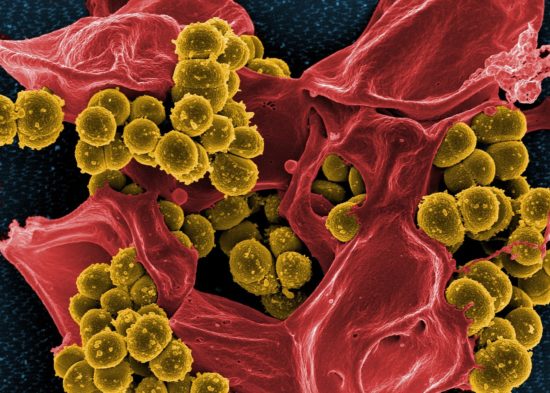Combating Antimicrobial Resistance Globally Requires Maintaining Safety of Available Antibiotics and a Robust Pipeline; Animal and Environmental Health Strategies Also Needed
Combating antimicrobial resistance — which kills about 36,000 people a year in the United States alone — not only requires a strong pipeline of new antimicrobial medicines and other products, but also preserving the effectiveness of those already in use, says a new congressionally mandated report from the National Academies of Sciences, Engineering, and Medicine. The report recommends ways to hold nursing homes, dialysis centers, and long-term care hospitals, in particular, accountable for appropriate use of antimicrobials.
Although antimicrobial resistance is most apparent in human medicine, the report says policymakers should consider the interconnectedness of human, animal, and environmental health — a One Health perspective.
Safe, effective antimicrobials are cornerstones of modern medicine as well as pandemic preparedness and response. As microbes know no borders, the United States’ program to counter resistant pathogens should be proportionate to the size and scope of the threat, says Combating Antimicrobial Resistance and Protecting the Miracle of Modern Medicine. A program modeled after the President’s Emergency Plan for AIDS Relief may be best suited to addressing the global health challenge of antimicrobial resistance.
AMR NEWS
Your Biweekly Source for Global AMR Insights!
Stay informed with the essential newsletter that brings together all the latest One Health news on antimicrobial resistance. Delivered straight to your inbox every two weeks, AMR NEWS provides a curated selection of international insights, key publications, and the latest updates in the fight against AMR.
Don’t miss out on staying ahead in the global AMR movement—subscribe now!







